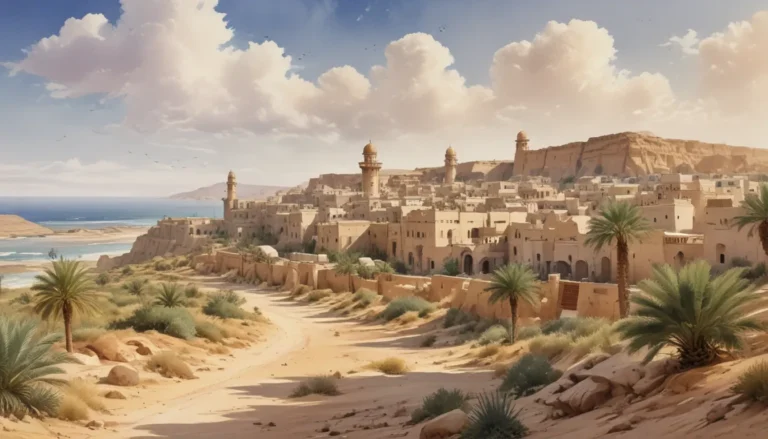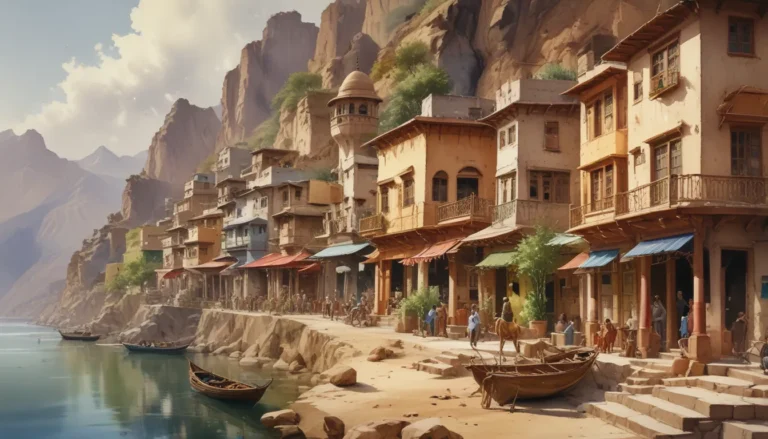The images in our articles are for illustrative purposes only and may not exactly match the content. They are intended to capture your interest and complement the text, not to replace it.
Nauru, a tiny island nation in the Pacific Ocean, may be small in size but is rich in history, culture, and natural beauty. From its unique flag to its stunning coral reefs, Nauru has a lot to offer curious travelers and history enthusiasts. In this article, we will delve into 30 intriguing facts about Nauru, shedding light on its captivating story and hidden treasures. Whether you’re interested in its phosphate-rich lands or its warm hospitality, Nauru is sure to captivate you with its charm and unique identity.
Unveiling Nauru: A Glimpse into the World’s Smallest Island Nation
Nauru holds the esteemed title of being the world’s smallest island nation, with an area of just 21 square kilometers. Despite its small size, Nauru has made a significant impact on the global stage, boasting a rich history and vibrant culture that continues to inspire visitors from around the world.
The Land of Phosphate: Nauru’s Rich Natural Resource
Nauru is renowned for its extensive phosphate deposits, once making it one of the wealthiest countries in the world due to its lucrative phosphate exports. Over time, the country has faced challenges with depleting reserves, highlighting the delicate balance between economic prosperity and environmental conservation.
Nauru’s Cultural Heritage: A Legacy of Tradition and Diversity
Nauru’s traditional dances are a vibrant expression of its cultural heritage, showcasing elements of daily life and historical events. With a unique language and strong sense of community, Nauru is a melting pot of Micronesian influences that create a tapestry of tradition and modernity.
Sun, Sand, and Sea: Exploring Nauru’s Stunning Coral Reefs
Nauru’s clear turquoise waters are home to stunning coral reefs, making it a paradise for divers and snorkelers. With an abundance of marine life and breathtaking underwater landscapes, Nauru’s pristine waters offer a gateway to a world of natural beauty and wonder.
Nauru’s Independence Journey: From Colony to Sovereign Nation
Formerly a British colony administered by Australia, Nauru gained independence in 1968, marking a significant milestone in its history. Today, the country celebrates its unique identity and strives to preserve its cultural heritage amidst the challenges of a changing world.
Preserving Nauru’s Natural Resources: Conservation and Sustainability Efforts
Nauru faces environmental challenges such as climate change, rising sea levels, and coastal erosion. Through conservation efforts and protected areas, the country is working towards safeguarding its unique flora and fauna for future generations to enjoy.
Embracing Diversity: Nauru’s Culinary Delights and Traditional Handicrafts
Nauru’s cuisine, influenced by its Micronesian roots, features coconut-based recipes, seafood dishes, and tropical fruits. Additionally, the country is known for its traditional handicrafts, including woven baskets, mats, and carvings made from local materials, showcasing the creativity and craftsmanship of its people.
A Peaceful Oasis: Nauru’s Tranquil Beauty and Warm Hospitality
Nauru is a peaceful escape for visitors seeking relaxation and natural beauty. With its untouched landscapes, friendly locals, and intriguing history, Nauru offers a warm welcome to travelers looking to explore its hidden treasures and experience its unique charm firsthand.
In conclusion, Nauru is a captivating country with a rich history, breathtaking landscapes, and a strong cultural heritage. Despite its small size, it has made a lasting impression on the world stage and continues to cherish its distinct identity. Whether you’re drawn to its natural wonders, traditional arts, or friendly locals, Nauru has something for everyone to discover and enjoy. So, if you ever find yourself on the shores of this Pacific jewel, be prepared to be enchanted by its beauty, intrigued by its history, and welcomed with open arms by its hospitable people.







